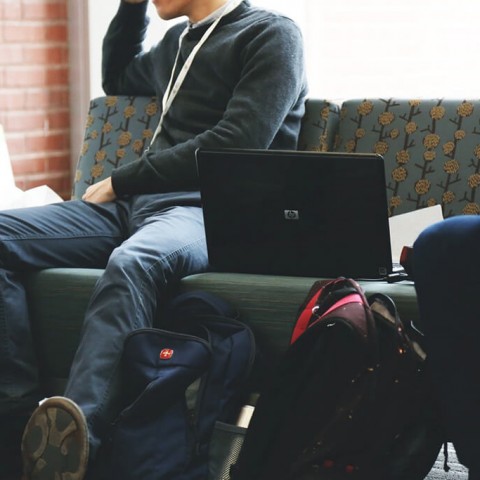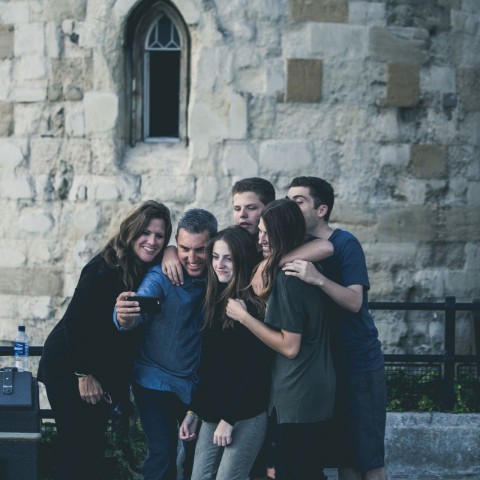Can refugees study in Germany at all? Together with Aya, a student from Syria, we are currently investigating this question. In her first interview she told us about her escape from Syria and her plans to make a master’s degree in Germany. But how to get started with such a project at all? It is difficult to get the right information in a foreign country with a different language. In this article, we summarize all the important information and contacts to motivate even more refugees to make their dream about studying in Germany come true.
Who is allowed to study in Germany?
According to the official site Study-in.de, every refugee is allowed to study at a German university. It is unproblematic, especially if the residence status is recognized or a status of toleration exists.
Which subjects can refugees study in Germany?
According to studieren-in-deutschland.org, refugees can pass all types of study programs that are available at German higher education institutions:
- Bachelor study (basic study) – for students who are studying for the first time
- Master’s degree – for students with Bachelor’s degree or equivalent degrees
- State examination – for graduates who wish to work in Germany as doctors, lawyers, teachers or pharmacists
- Conferral of a Doctorate – for students who have a master’s degree or state examination
Where can refugees get information?
Aya first looked for information at the territorially competent Jobcenter. At the Jobcenter, her previous course achievement will be checked and sent to a university that offers the respective course of study for approval. Aya came to Germany very well prepared. She had all her documents already certified and translated in Syria. This can be an advantage, but is not essential. The Federal Government also offers an online consultant on „Recognition of foreign professional qualifications and studies„. In Aya’s case, her Syrian diploma in geotechnics is equivalent to a European Bachelor’s degree. Unfortunately, many Jobcenters are still poorly trained concerning study opportunities for refugees and it is recommended to do your own research.
Are there special student programs for refugees?
Yes, in fact, the DAAD (Deutscher Akademischer Austauschdienst) is promoting more than 170 universities and study colleges in the „Integra-Programm“and the „Welcome-Program„. These programs enable refugees to bring their German skills to a high school level (B2 or C1) and prepare them for their studies with special preparatory courses and as guest students. The Federal Office for Migration and Refugees (BAMF – Bundesamt für Migration und Flüchtlinge), the Standing Conference of Ministers of Education and Cultural Affairs (KMK – Kultusministerkonferenz), the DAAD, the German Student Union (DSW – Deutsche Studentenwerk) and the University Rectors‘ Conference (HRK – Hochschulrektorenkonferenz) have provided a general approach to assist universities and student organizations in the integration of refugees into their studies „University access and study of refugees„ (Source: DAAD). Here you can find an overview of all current university projects:
Where can refugees study?
Refugees are allowed to study at any university in Germany, provided that the individual fulfills the prerequisites (see above). Most universities in Germany are part of the DAAD „Welcome-Program„ and have detailed information on their own websites. Every prospected student needs to has to check the websites of the respective universities, preferably with a German native speaker, because the pages unfortunately are rarely multilingual.
How can refugees finance their studies?
Of course, the question of how to finance the studies is very important. In the case of a study, the Jobcenter is not necessarily responsible. Nevertheless, there are different ways to get financially supported as a studying refugee. The federal funding BAföG offers special credits to refugees and some universities waive or cover various fees. Individual federal states also have special funding programs, such as the „Scholarship Program for Refugees from Syria in Baden-Württemberg„. A list of university projects and the support measures of individual federal states can be found here.
Is there a special job and internship exchange for refugees?
Yes, with workeer.de there is a job exchange for job-seeking refugees and interested employers. From minijobs to internships to permanent employment, there are many offers and it is definitely worth taking a look.
Where can one find general information about living in Germany?
The Goethe Institut has compiled the most frequently asked questions about the start in Germany. Here you can find all useful information on everyday topics such as housing, shopping, health, finance and insurance.



